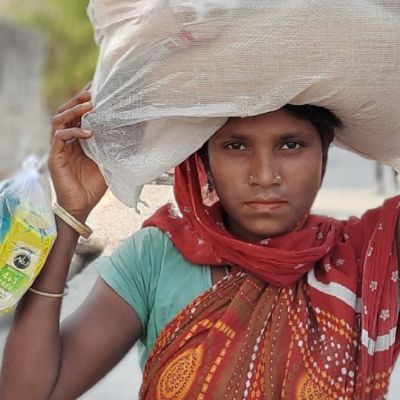Written by Tony Chan (Senior Partnership Development Officer)
“During that long period, the king of Egypt died. The Israelites groaned in their slavery and cried out, and their cry for help because of their slavery went up to God.” (Exodus 2:23)
The old Pharaoh promised to the prime minister Joseph that Joseph would take his father’s family to live in Egypt and live in the “best part of the land” (Genesis 47:6), the region of Goshen. Jacob, the ancestor of the Israelites, was able to reunite with his son Joseph and escape the famine with his family, so he seized the opportunity and moved to Egypt with his family of 70 members. Over the years, Jacob’s family and his offspring lived in Goshen, where they led a prosperous life and increased in numbers. However, the promise of the Egyptian authority did not extend to the new king. Many years later, the pharaoh did not like these foreigners and treated them badly.
Imagine the entire kingdom of Israel as a whole. At first, they thought that Egypt was a good refuge from famine, but then it became a hell on earth. The people were tortured and insulted every day.
By substituting the feelings of the oppressed Israelis of that generation, you may complain that your ancestors made the wrong decision to go to Egypt for their own interests at the time, hence falling into the hands of this evil kingdom. You can also substitute Jacob’s mood. If he had a chance to know that his decision would cause the future generations to suffer, he would have probably regretted it too.
In any case, the Bible verse that the cries of the oppressed went up to God delivers a very important message. Because the Lord listened to the cries of the oppressed, He later used Moses to save them and deliver them from their arduous conditions.
In terms of human trafficking, many poor people let their children go out to work and earn money to support their families because of their economic hardship. They used to think it was an opportunity to change their lives but in turn becomes a crisis. Later, the children are trafficked to dungeons, such as the red light districts and the sweat factories, where they are treated like slaves every day. These are the plights of the poor, and I believe the Lord already knows as He listens to them. As for us who follow God must also listen to the cries of the poor, so that we become the Lord’s instruments and fulfill His good will of saving victims of human trafficking.
Content of this issue
Written by: Clara Chiu (Head of Partnership Development) From July 20th to 23rd this year, several CEDAR staff participated in the “Asia Region Anti-Trafficking Conference” (hereinafter referred to as the conference). The conference was held for the first time three years ago, and this year is the third. It was changed to conduct online due to the pandemic. The purpose of the conference is to gather people from all parts of Asia who are concerned about human trafficking, and learn about it with other forms of modern slavery through various workshops, and know more about the latest anti-trafficking measures. During the meeting, representatives from different organisations mentioned that the situation of human trafficking has become worse under the…
Written by Tony Chan (Senior Partnership Development Officer) “During that long period, the king of Egypt died. The Israelites groaned in their slavery and cried out, and their cry for help because of their slavery went up to God.” (Exodus 2:23) The old Pharaoh promised to the prime minister Joseph that Joseph would take his father’s family to live in Egypt and live in the “best part of the land” (Genesis 47:6), the region of Goshen. Jacob, the ancestor of the Israelites, was able to reunite with his son Joseph and escape the famine with his family, so he seized the opportunity and moved to Egypt with his family of 70 members. Over the years, Jacob’s family and…
Written by Edward Lai (Senior Communication Officer) As the pandemic is raging around the world, criminals do not only “hunt” civilians in a hidden way in poor villages, they also target their prey via the internet. By using their poor and fragile situation, they can easily force or lure the victims to work in sex industry, or engage in forced labour or any work that is obviously not commensurate with pay. Facing the “new normal” under the pandemic, Aashima Samuel, EFIC@R’s National Director, who has been engaged in anti-child trafficking for many years, shared her team’s coping strategies. Q: How does your team equip churches and local communities to fight child trafficking? A: In terms of preventive education,…
Banner image: Ayesha [centre], coordinator of CEDAR’s Nepalese partner, Asha Nepal (Updated on 9 October 2020) Our Nepalese partner recently told us that they rescued two girls from a red light area of India. The situation of the girls was very vulnerable so our partner carried out rescue even under the threat of COVID-19 and closing of borders. These two girls, who were physically and mentally weak, had undergone different circumstances. One of the girls named Nagina (pseudonym, 11 years old) had been sold by her own mother to a relative as a servant, due to poverty. The other girl named Lola (pseudonym, 16 years old) had been harassed sexually by her own father, after the death of…






